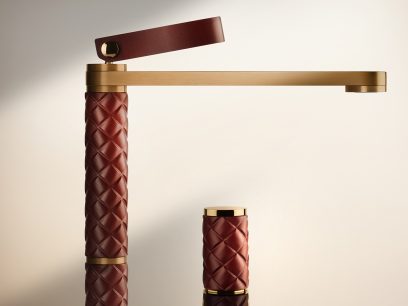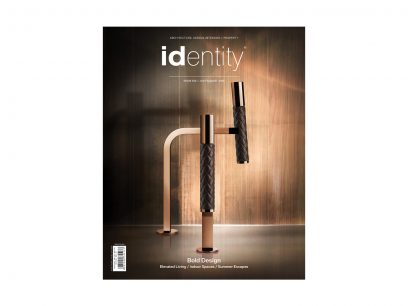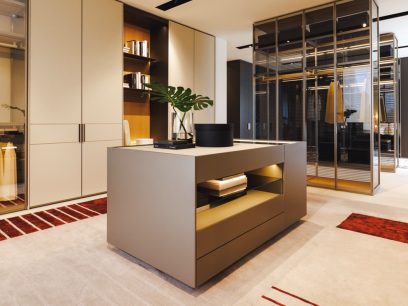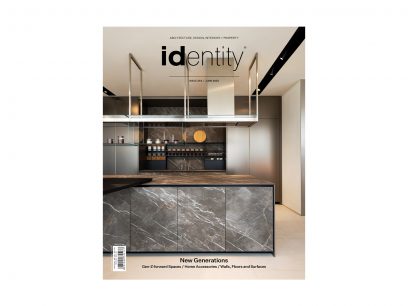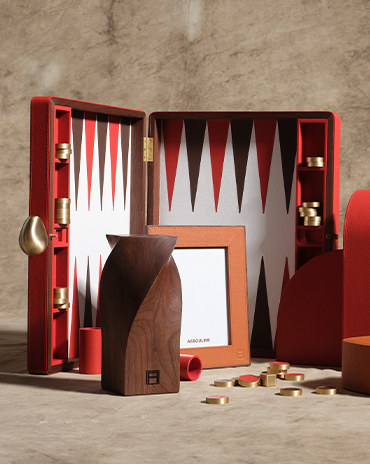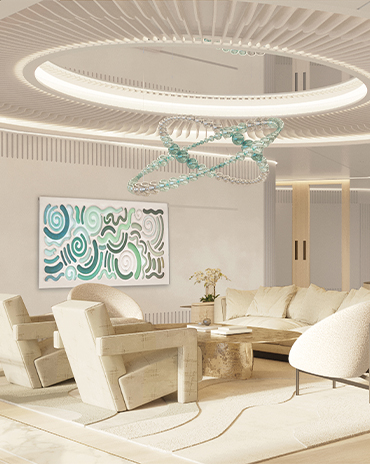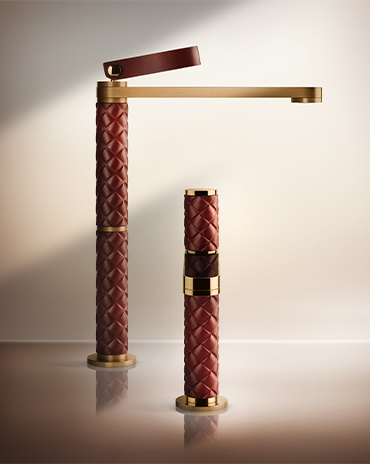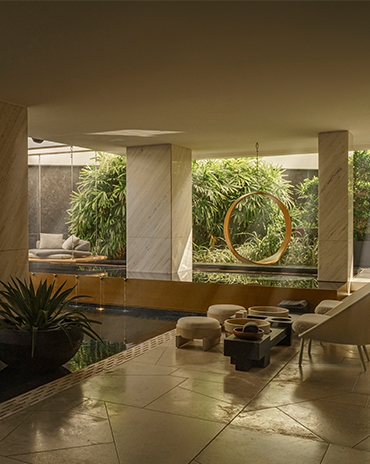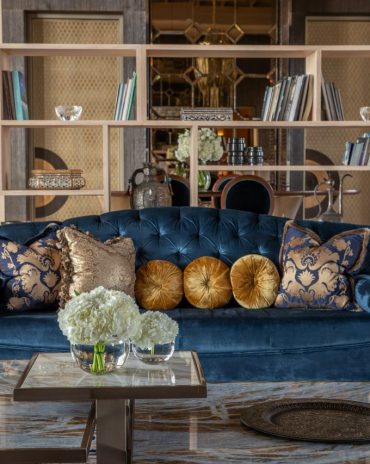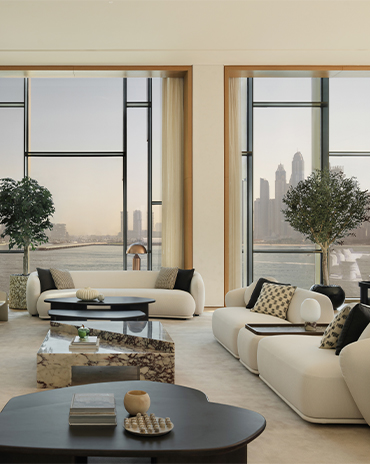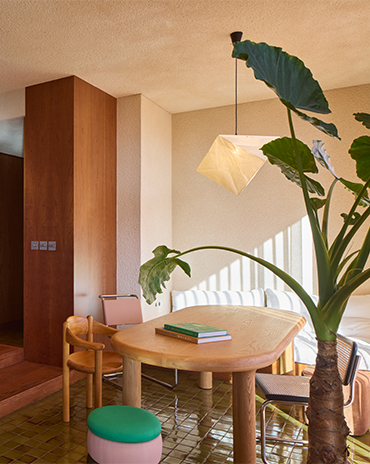Copyright © 2025 Motivate Media Group. All rights reserved.
Herman Miller reengineers its Aeron chair using ocean-bound plastic
Herman Miller's top selling office chair joins its roster of products made using recycled content
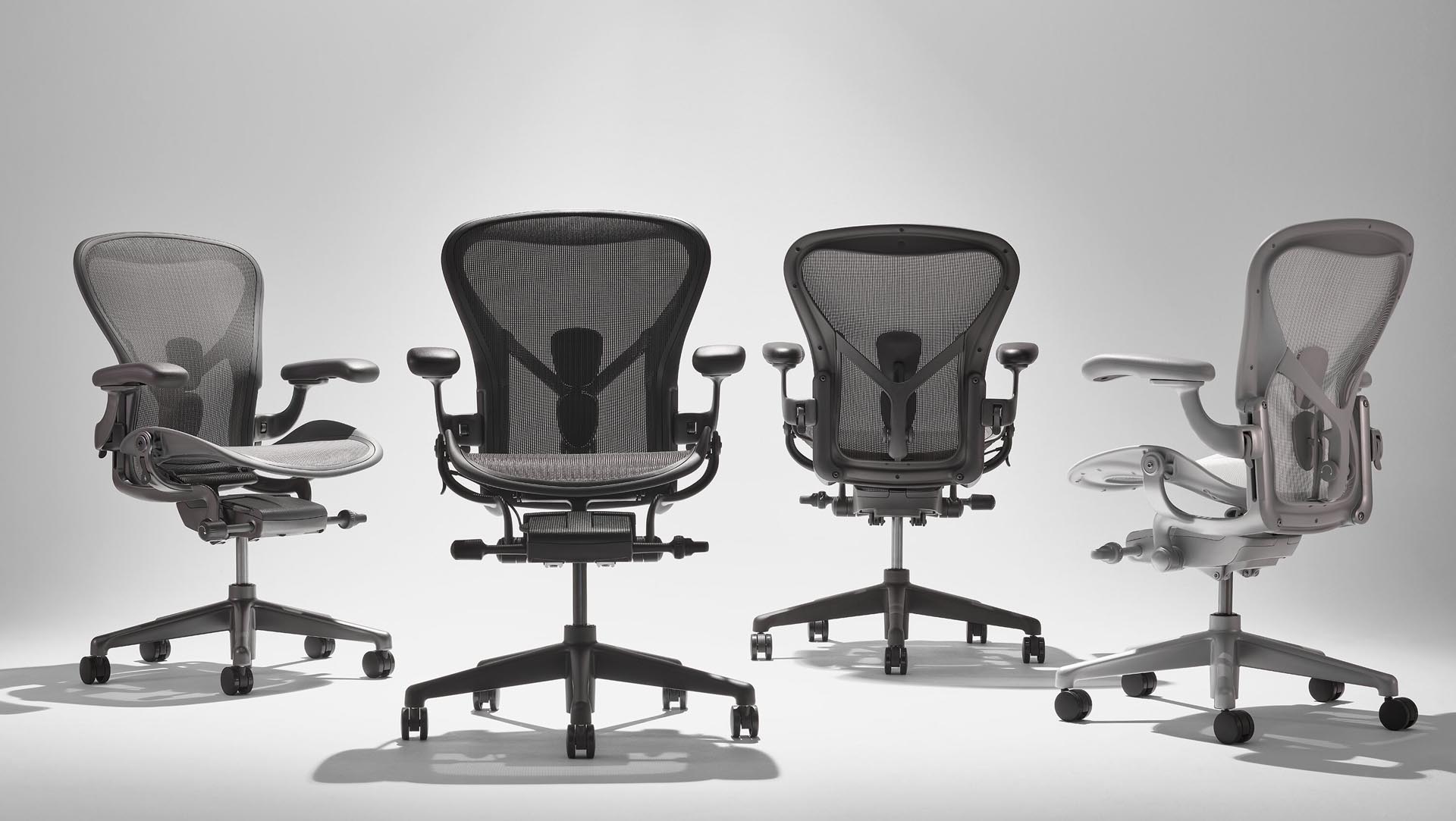
Since making a commitment to increase recycled content in its products to 50%, Herman Miller has announced that its entire portfolio of Aeron chairs – its top selling office chair – will now be made using ocean-bound plastic by 2030, including its newest colour launch, Onyx Ultra Matte. Each chair now contains up tp 1.13kg of mismanaged plastic waste found near waterways.
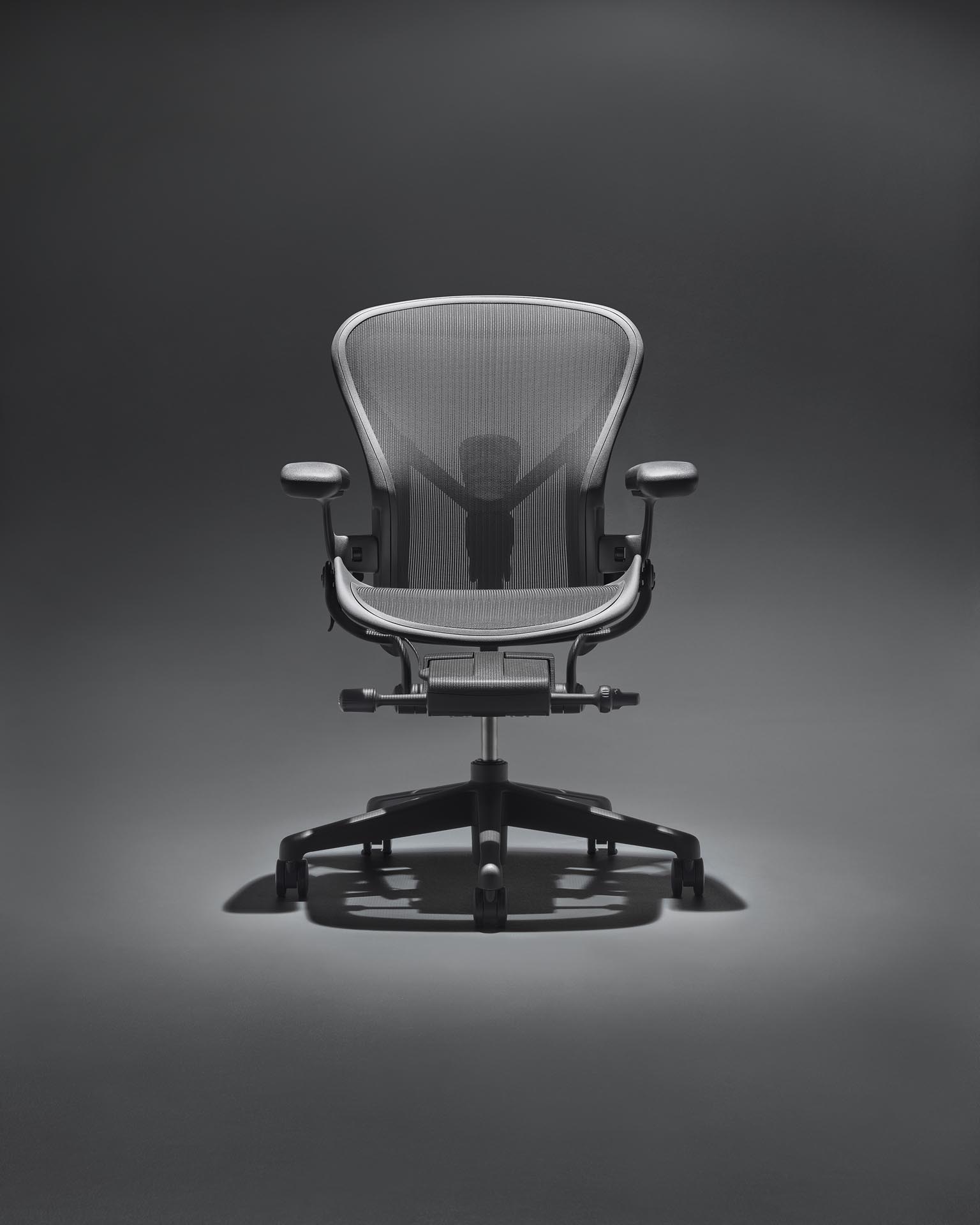
Based on its annual sales forecasts, these material changes in the Aeron portfolio are projected to save over 150 tons of ocean plastic annually, which is approximately 15 million single-use plastic water bottles.
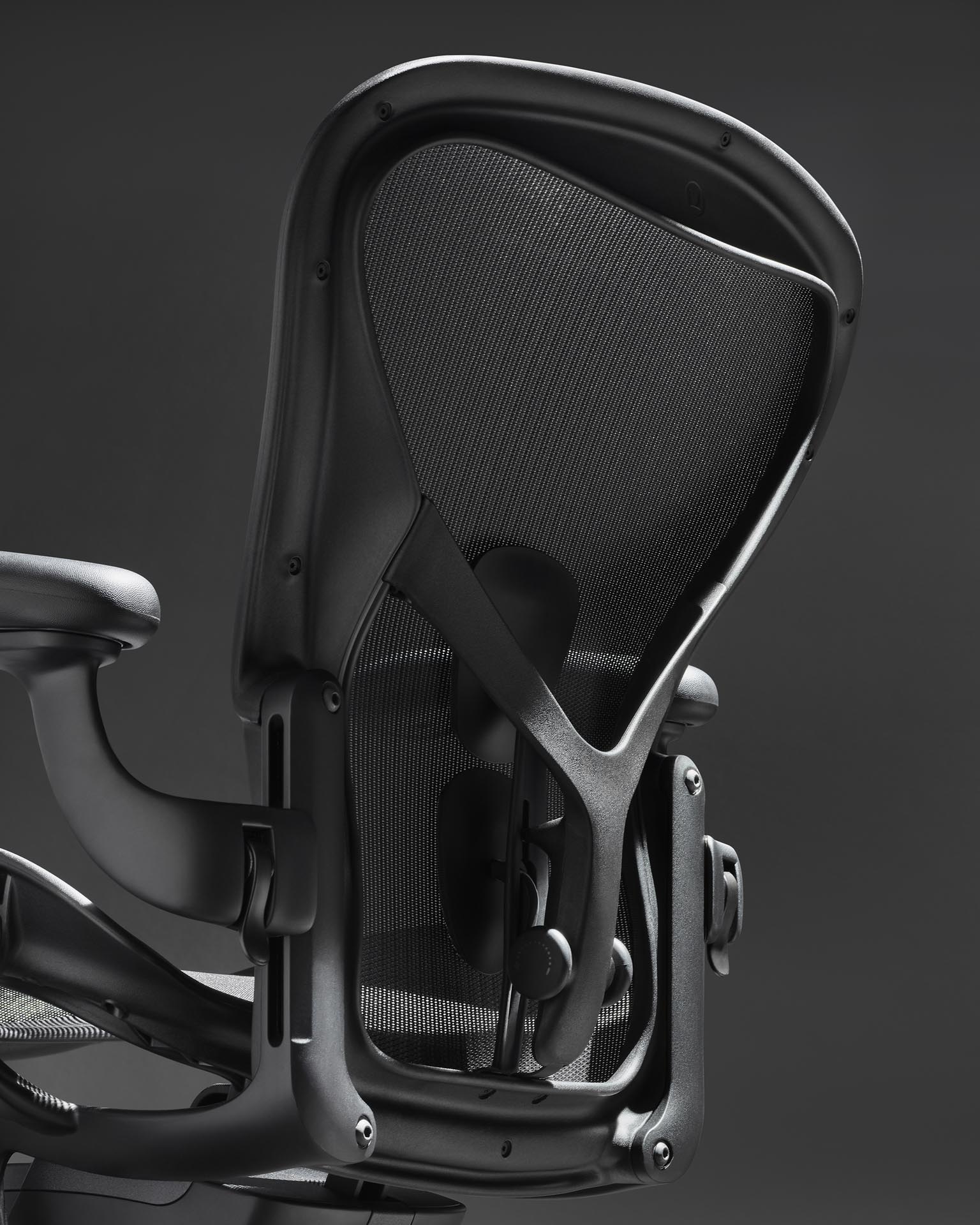
Ocean-bound plastic is plastic material that has not yet found its way into the ocean and is classified as “mismanaged waste.” That is, plastic that is not being collected, is unlikely to be collected, and found within 50 kilometers of a coastline. Common examples of ocean-bound plastic include plastic bottles, jugs, caps, and fishing gear.
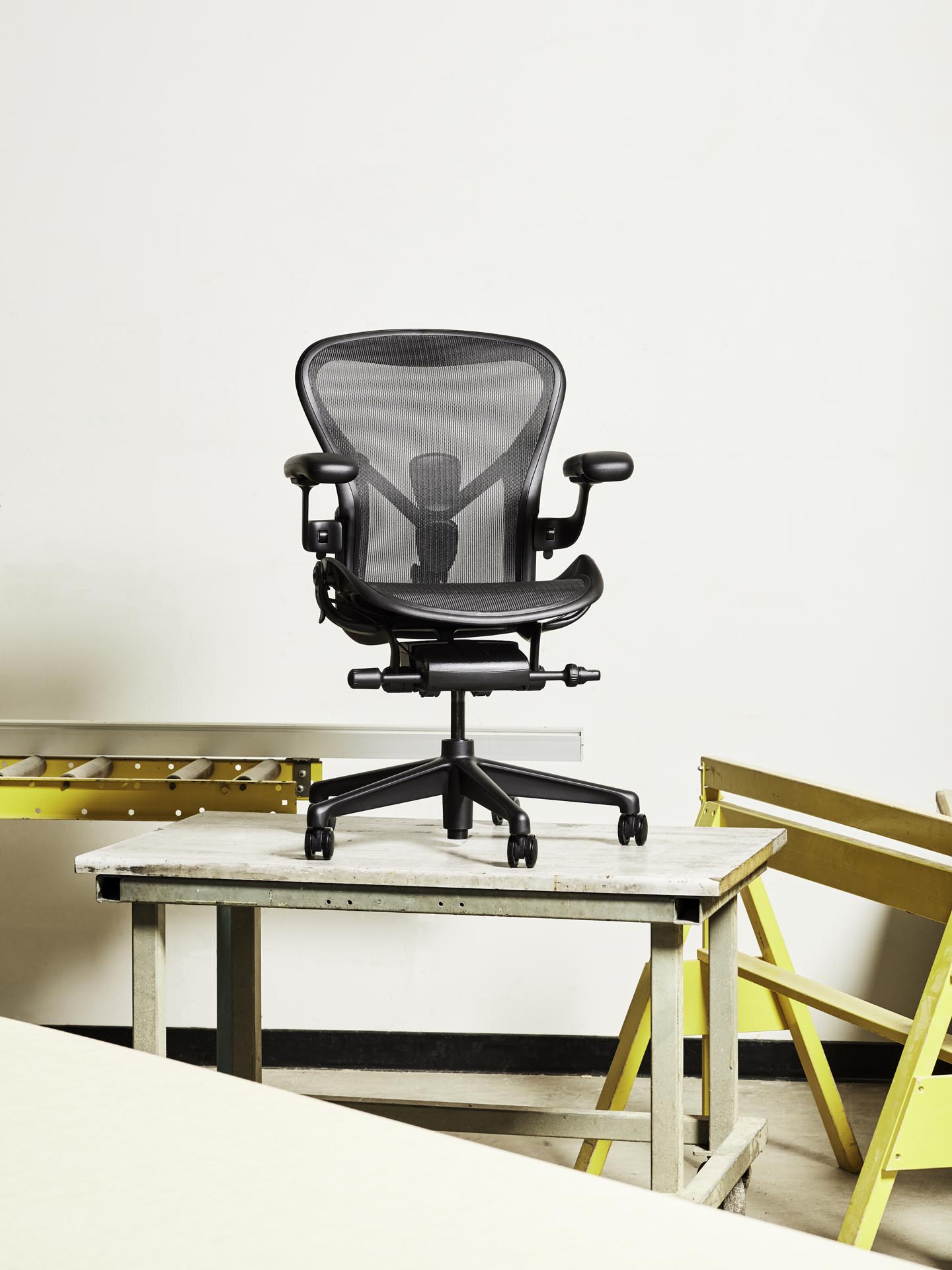
When plastic waste builds up in coastal cities, suppliers work with local pickers to collect the waste material. Once collected, the plastic is ground, washed, and pelletised. From there, it is sold to manufacturers who test and re-engineer the plastic to be incorporated into products.
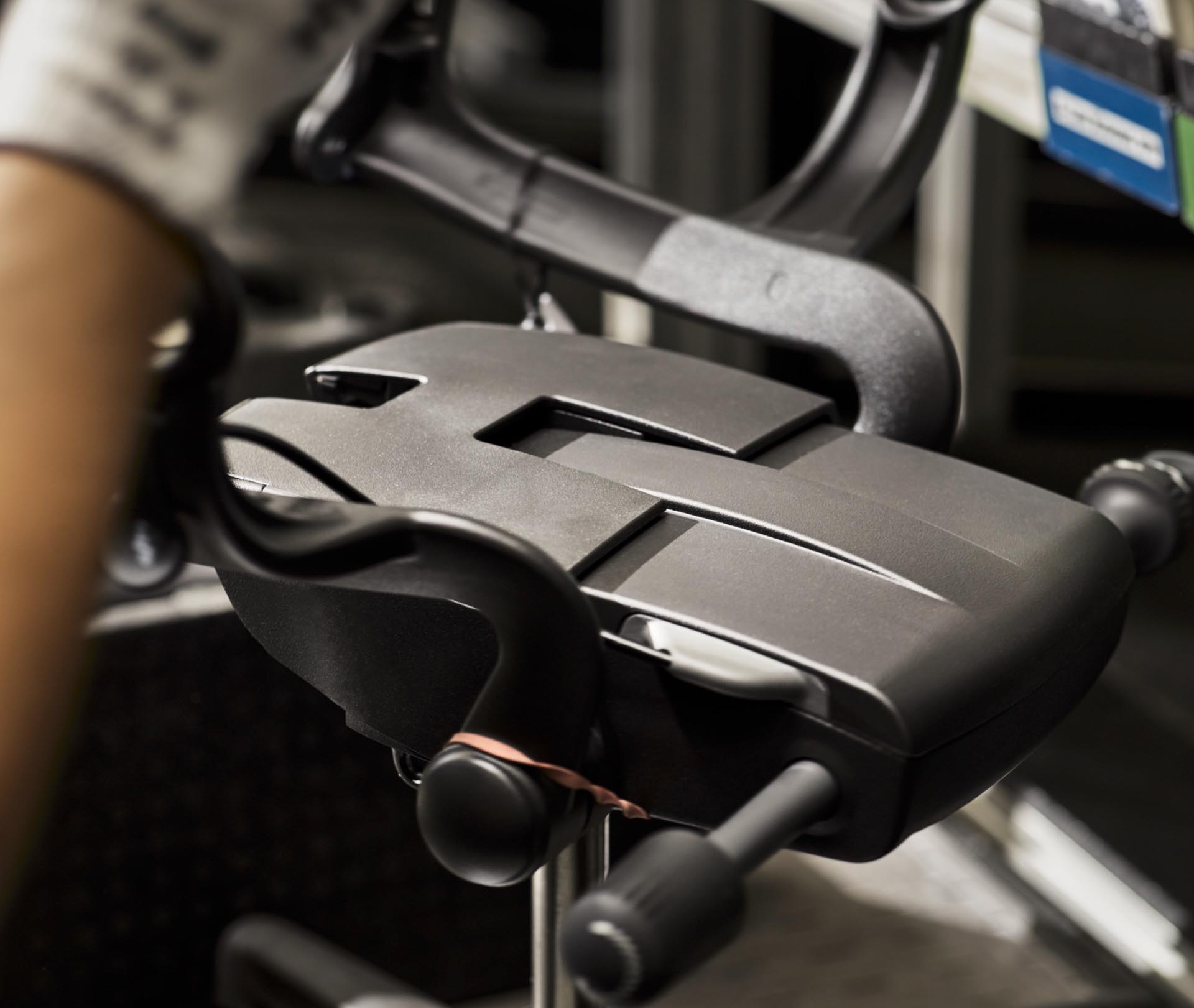
“On our current trajectory we are at risk of tripling the rate of new plastic entering the ocean every year. A critical strategy to disrupt that path is to demonstrate the value of ocean-bound plastic. In bringing the Aeron chair made with ocean-bound plastic to market, Herman Miller is not only proving the commercial value of the material but showcasing the power of collective action in developing ocean-bound plastic supply chains,” said Dune Ives, CEO of Lonely Whale.
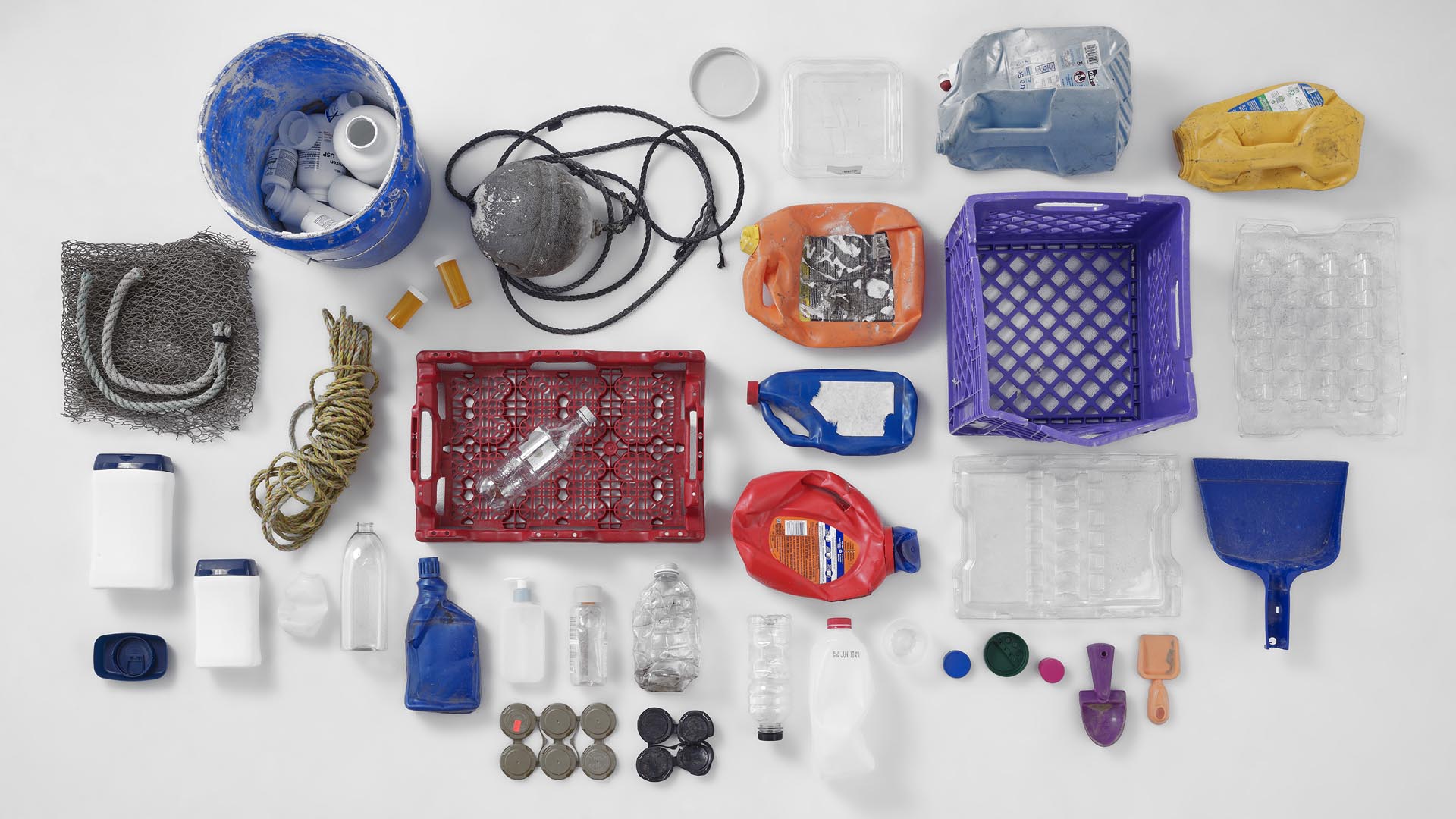
“Herman Miller, and all members of the NextWave Plastics consortium, are taking the necessary action – today – to make a positive impact for the ocean and for us all.”
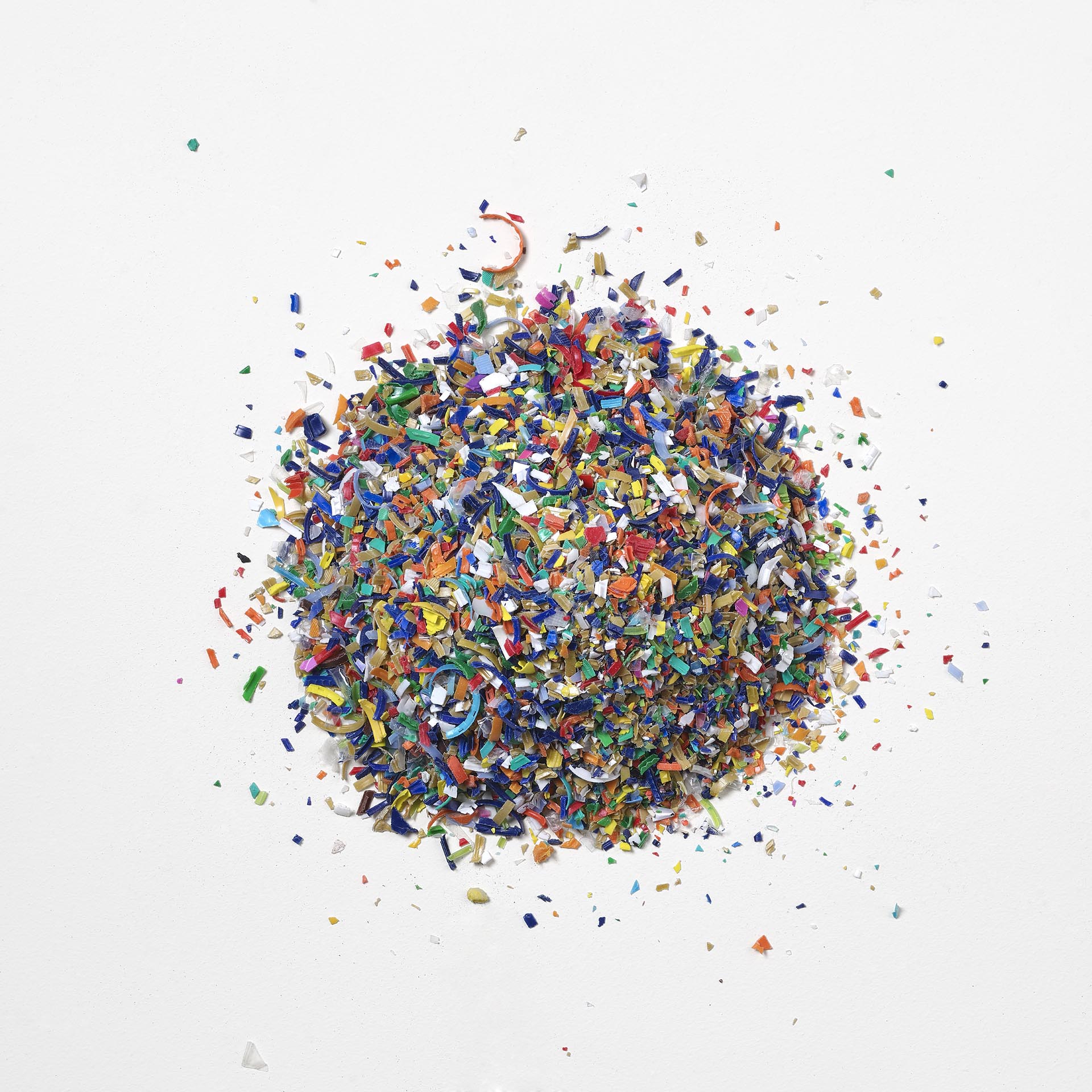
“Every year, an estimated eight million tons of plastic enter the ocean. This is roughly equivalent to dumping a garbage truck full of plastic into the ocean every minute,” said Gabe Wing, Herman Miller’s Director of Sustainability. “We joined NextWave to play an active role in taking on the ocean plastic problem and cast a wide net for opportunities to incorporate ocean-bound plastic across our global operations. We’re proud of the progress we’ve already made with packaging and textiles and are eager to continue doing our part in preventing harmful plastic from reaching our oceans by adding it to the iconic Aeron Chair.”
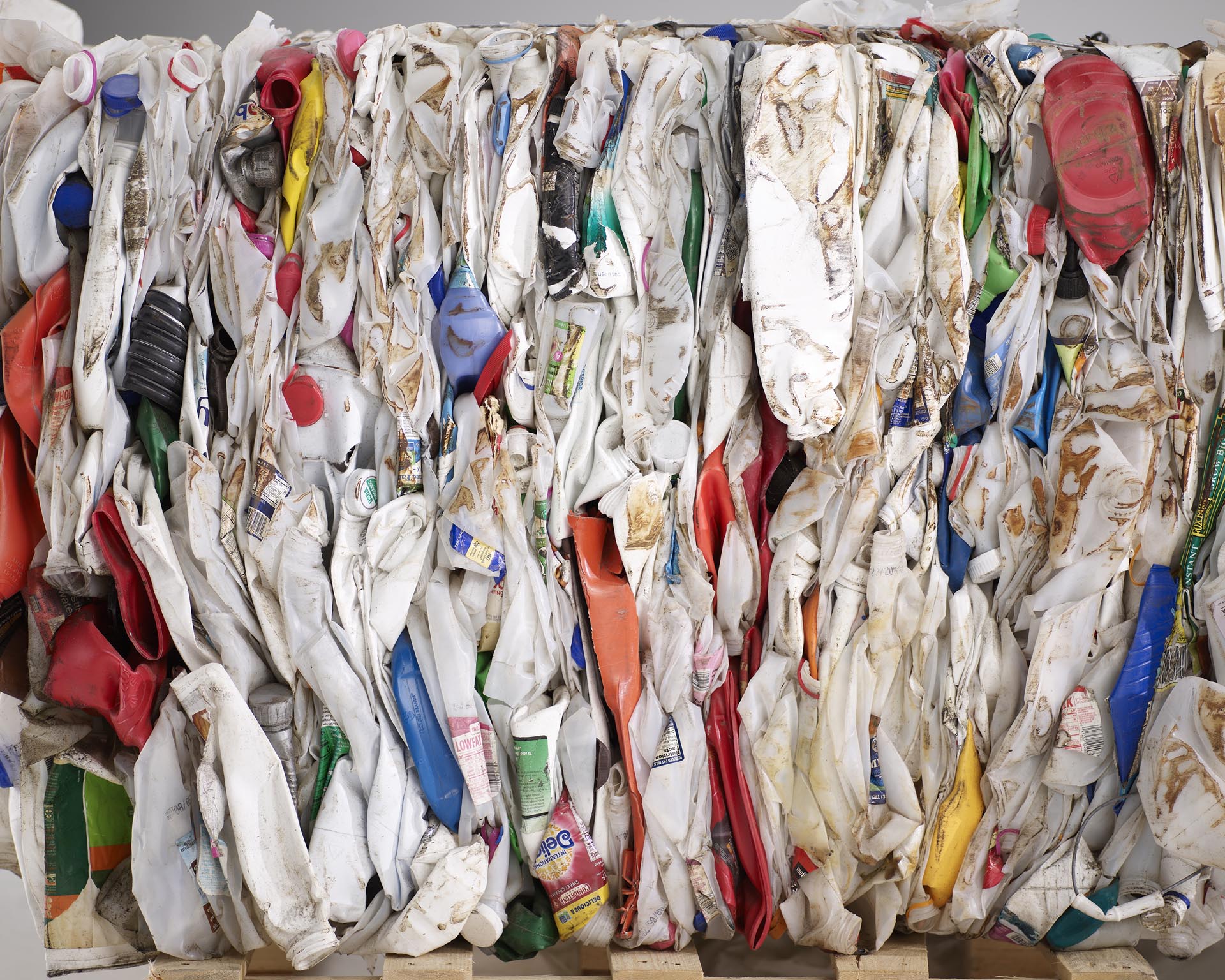
The brand’s iconic model was introduced nearly 30 years ago, designed by introduction nearly 30 years ago. Designed by Bill Stumpf and Don Chadwick in 1994 and remastered in 2016. The chair was a pioneer in both ergonomics and material innovation, without relying on the standard use of foam, fabric, or leather found in most office chairs at the time.
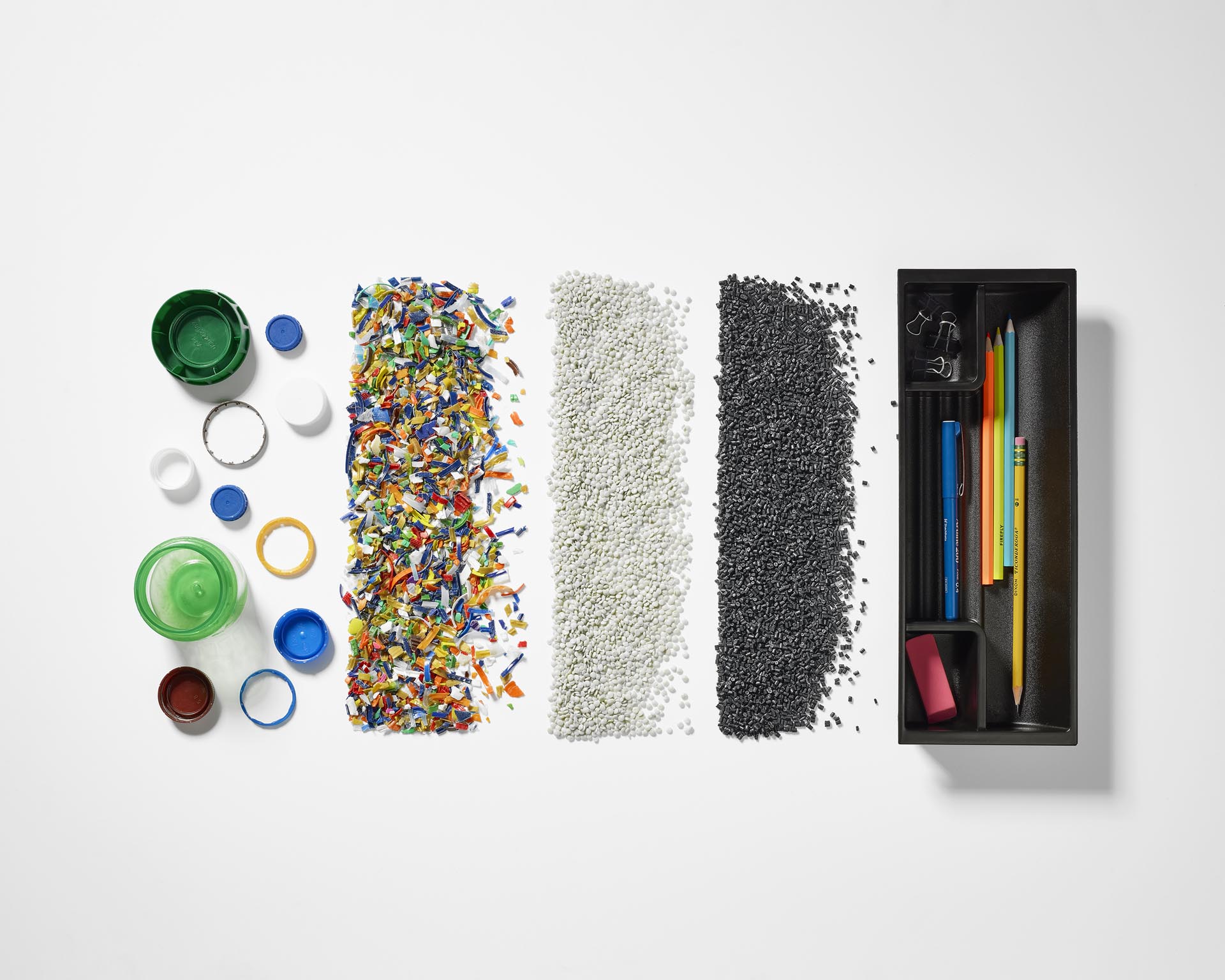
Depending on configuration, the ocean-bound plastic in Aeron can be found in the frame and tilt covers of the chair and contains between 226.8 g and 1.13 kg of the recycled material per chair, equivalent to approximately 23 to 114 plastic water bottles. The new Onyx Ultra Matte colourway contains the highest amount of ocean-bound plastic.
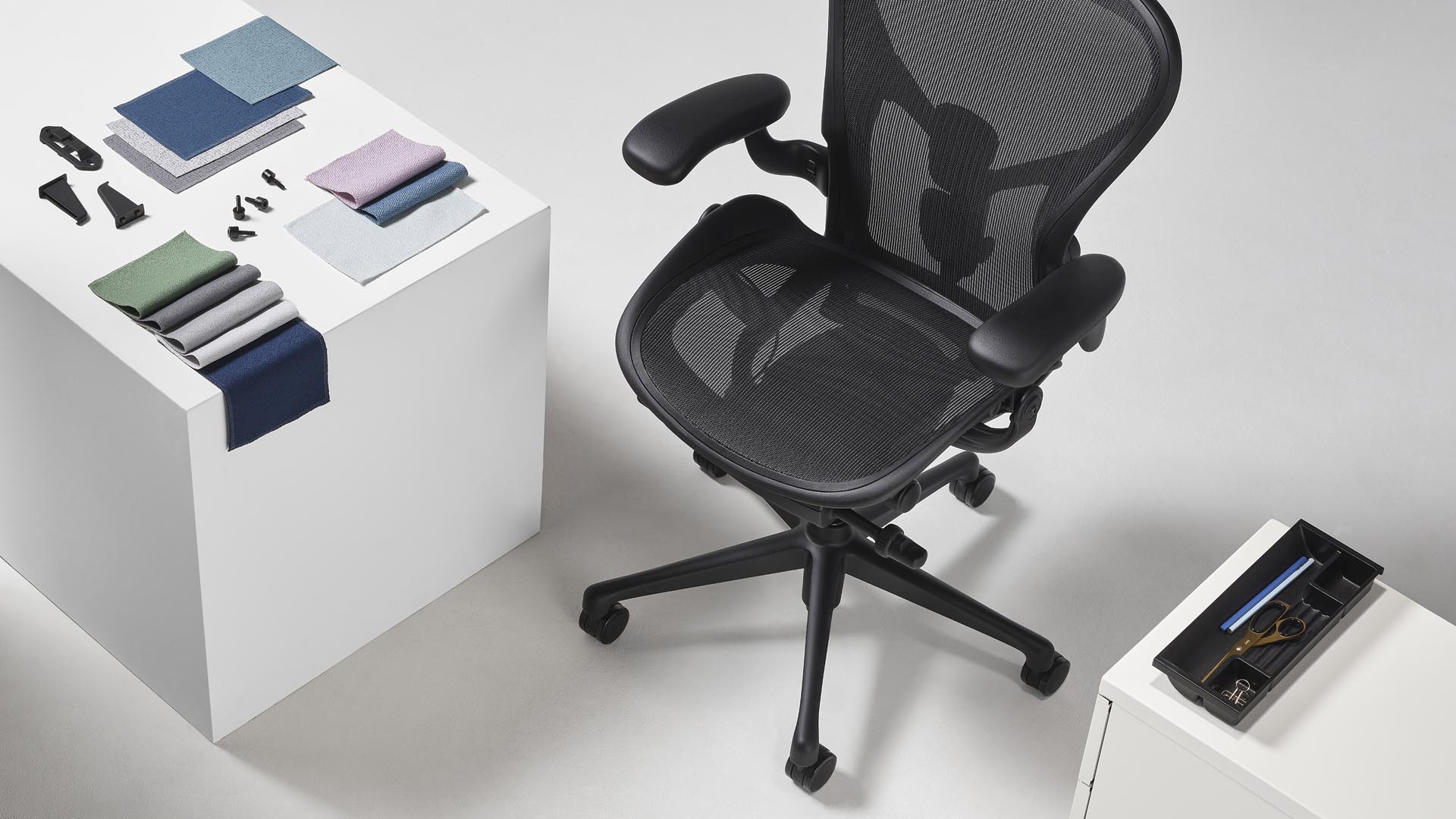
Aeron is available in a palette of four material expressions that are inspired by the elements that are pulled from the Earth. ‘Onyx’ is a dramatic ultra-black shade intended to modernise the chair, while ‘Graphite’ is a distinctive dark gray, with a classic textured finish. ‘Carbon’ offers a balanced neutral that works equally well in warm and cool environments and ‘Mineral’ is the lightest in shade and illuminates Aeron’s finer points, and is ideal for open floor plans and spaces.
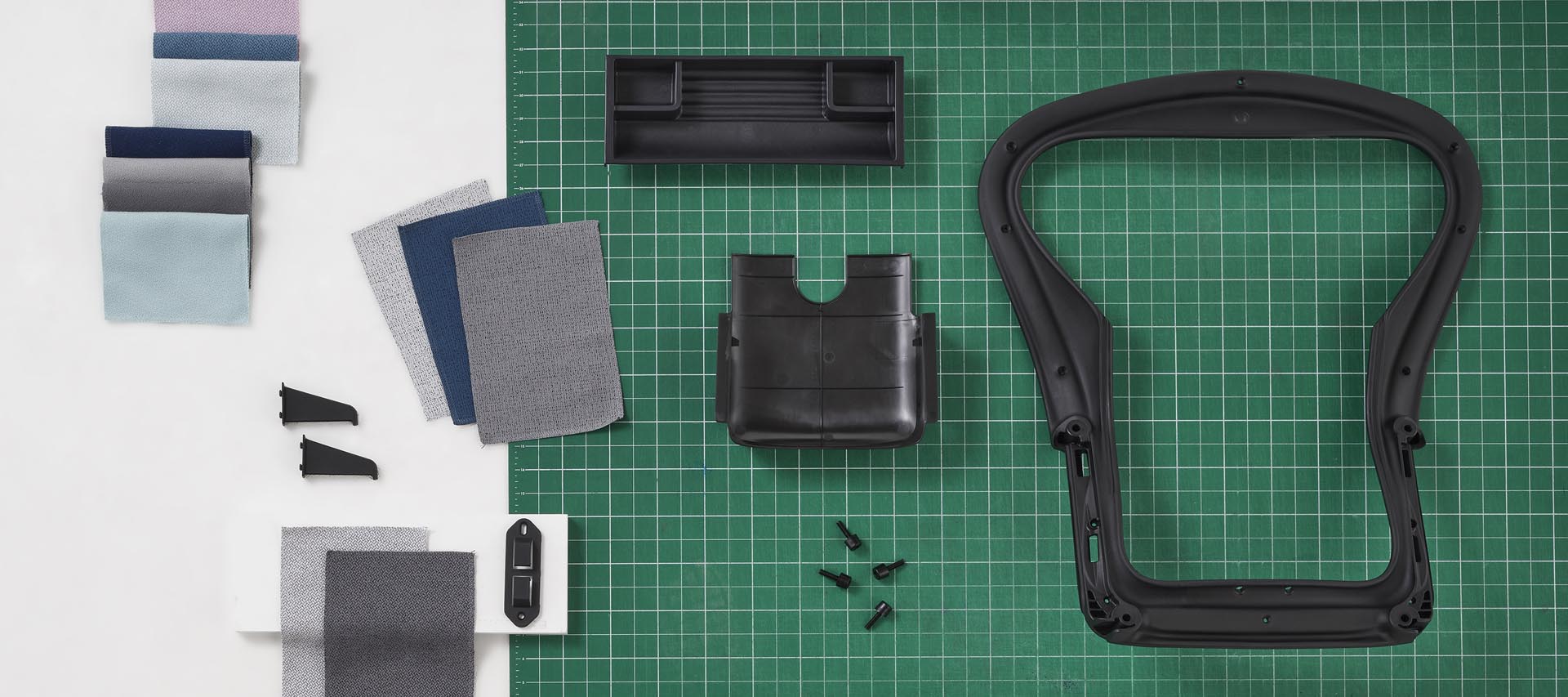
Herman Miller’s efforts to utilise ocean-bound plastic also includes parts of the recently launched OE1 Workplace collection, including the Sayl Chair in Europe, utility trays as part of the pedestal units, and its latest textile collection, Revenio, which is made of 100% recycled materials and includes a biodegradable polyester.
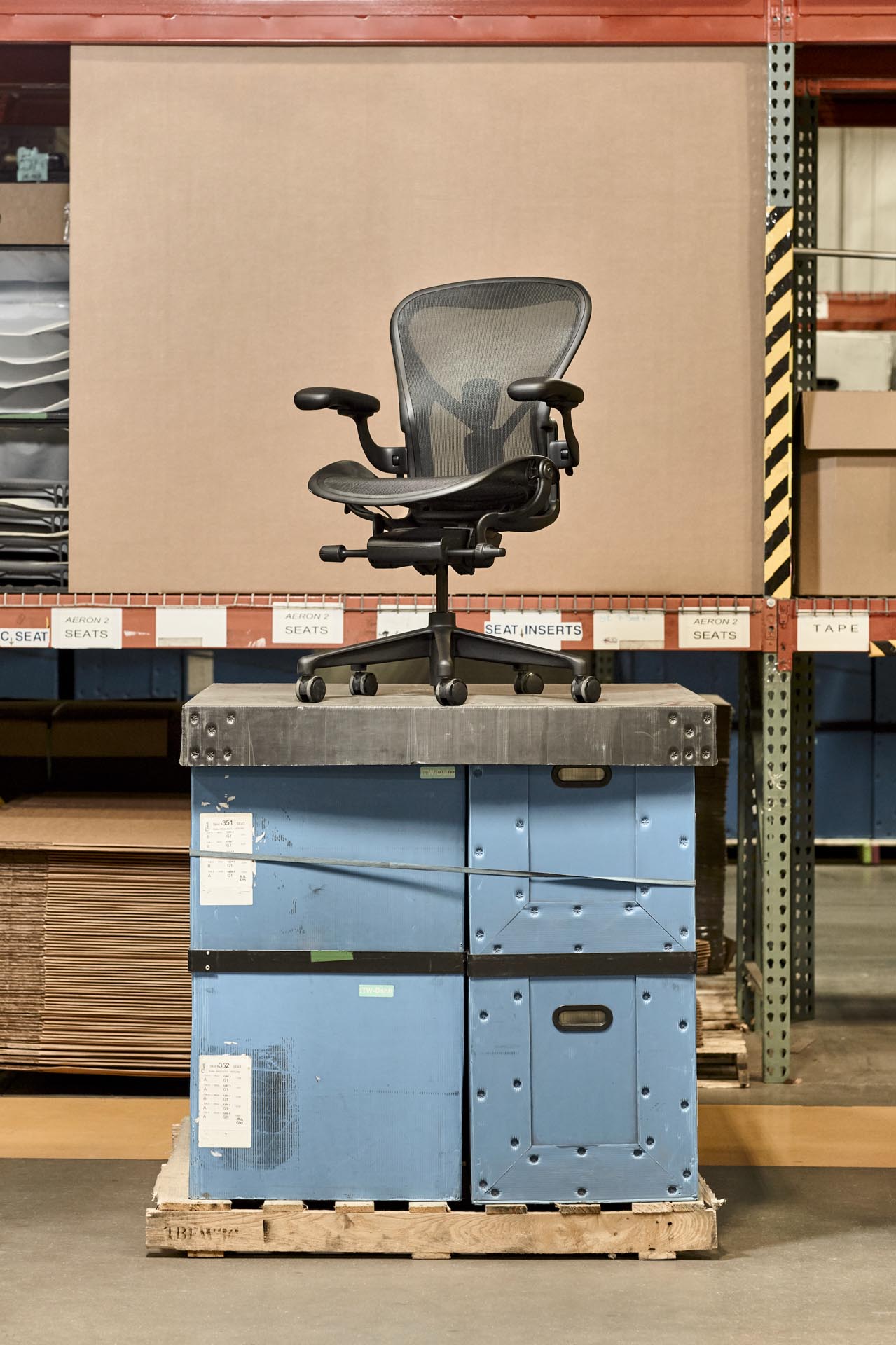
The company is also reducing its footprint by adding ocean-bound plastic to returnable shipping crates that send seating parts to and from suppliers and poly bags used to keep products safe during transit.
The Latest
Elevate Your Reading Space
Assouline’s new objects and home fragrances collection are an ideal complement to your reading rituals
All Aboard
What it will be like aboard the world’s largest residential yacht, the ULYSSIA?
Inside The Charleston
A tribute to Galle Fort’s complex heritage, The Charleston blends Art Deco elegance with Sri Lankan artistry and Bawa-infused modernism
Design Take: Buddha Bar
We unveil the story behind the iconic design of the much-loved Buddha Bar in Grosvenor House.
A Layered Narrative
An Edwardian home in London becomes a serene gallery of culture, craft and contemporary design
A Brand Symphony
Kader Mithani, CEO of Casamia, and Gian Luca Gessi, CEO of Gessi, reflect on the partnership between the two brands
The Art of Wellness
Kintsugi in Abu Dhabi, situated in a seven-storey villa, offers the ultimate zen retreat
Design Take: Inside the Royal Suite at Jumeirah Al Naseem
With sweeping views of the ocean and Burj Al Arab, this two bedroom royal suite offers a lush stay.
Elevated Living
Designed by La Bottega Interiors, this penthouse at the Delano Dubai echoes soft minimalism
Quiet Luxury
Studio SuCo transforms a villa in Dubailand into a refined home
Contrasting Textures
Located in Al Barari and designed by BONE Studio, this home provides both openness and intimacy through the unique use of materials
Stillness, Form and Function
Yasmin Farahmandy of Y Design Interior has designed a home for a creative from the film industry

